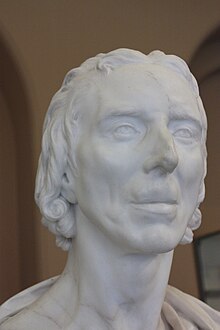Anthony Addington

Anthony Addington (1713 – 22 March 1790) was an English physician.
Life
Addington was born at
College of Physicians, and went into practice in London, but was compelled by bad health to move to the country. His career gained considerable public attention when he appeared as an expert for the prosecution of Mary Blandy for the poisoning of her father Francis Blandy in 1752. He then retired to Reading in Berkshire, where he derived a large income from his profession, until his death in 1790. He devoted his attention particularly to the treatment of insanity, and was one of the physicians called in to see George III
when he first showed symptoms of mental aberration.
Addington was a confidential friend and adviser of
Lord Bute
.
Works
Addington wrote An Essay on the Sea Scurvy, wherein is proposed an easy method of curing that distemper at sea, and of preserving water sweet for any cruise or voyage. Reading, 1753. In this work, he describes the disease from accounts of others, rather than from his own observation. As treatment he recommended depletion, with the employment of
muriatic acid. He conceives meat to be injurious, but regards biscuit as food suitable to persons affected with scurvy
. He asserted that the addition of an ounce and a half of muriatic acid to a tun of water, will prevent its putrefaction, and preserve it sweet for any length of time.
An authentic Account of the Part taken by the late Earl Chatham in a Transaction which passed in the beginning of the year 1778 is no longer attributed to Addington.[3]
Family
Addington married in 1745, Mary, daughter of the Rev. Haviland John Hiley, headmaster of
Henry Addington, 1st Viscount Sidmouth, Prime Minister of the United Kingdom from 1801 to 1804, was their eldest son.[3] John Hiley Addington was the second son.[4]
- Anne, the eldest, married in 1770 William Goodenough M.D., who died that year.[5]
- Eleanor, the second, married James Sutton (died 1801) of Devizes.[6]
- Elizabeth married William Hoskins.[7]
- Charlotte, the youngest, married in 1788 Charles Bragge Bathurst.[8]
References
- Long, George. The Biographical Dictionary of the Society for the Diffusion of Useful Knowledge. London: Longman, Brown, Green & Longmans, 1842–1844. 4 vols.
- Espinasse, Francis (1885). . In Stephen, Leslie (ed.). Dictionary of National Biography. Vol. 1. London: Smith, Elder & Co.
Notes
- ^ https://www.oxforddnb.com/display/10.1093/ref:odnb/9780198614128.001.0001/odnb-9780198614128-e-149?rskey=oah7qE&result=12
- ^ "RBH Biography: Dr. Anthony Addington (1713-1790)". www.berkshirehistory.com. Retrieved 27 March 2021.
- ^ doi:10.1093/ref:odnb/149. (Subscription or UK public library membershiprequired.)
- ^ "Addington, John Hiley (1759–1818), of Chetwood, Som., History of Parliament Online". Retrieved 21 September 2017.
- ^ Illustrations of the Literary History of the Eighteenth Century by John Nichols. J. B. Nichols. 1831. p. 249.
- ^ Waylen, James (1839). Chronicles of the Devizes: being a history of the castle, parks and borough of that name; with notices statistical, parliamentary, ecclesiastic, and biographical. Printed for the Author, and sold by Longman and Co. p. 307.
- ^ Walford, Edward (1869). The County Families of the United Kingdom Or, Royal Manual of the Titled and Untitled Aristocracy of Great Britain and Ireland ... R. Hardwicke. p. 512.
- ^ The Gentleman's Magazine. F. Jefferies. 1831. p. 270.
